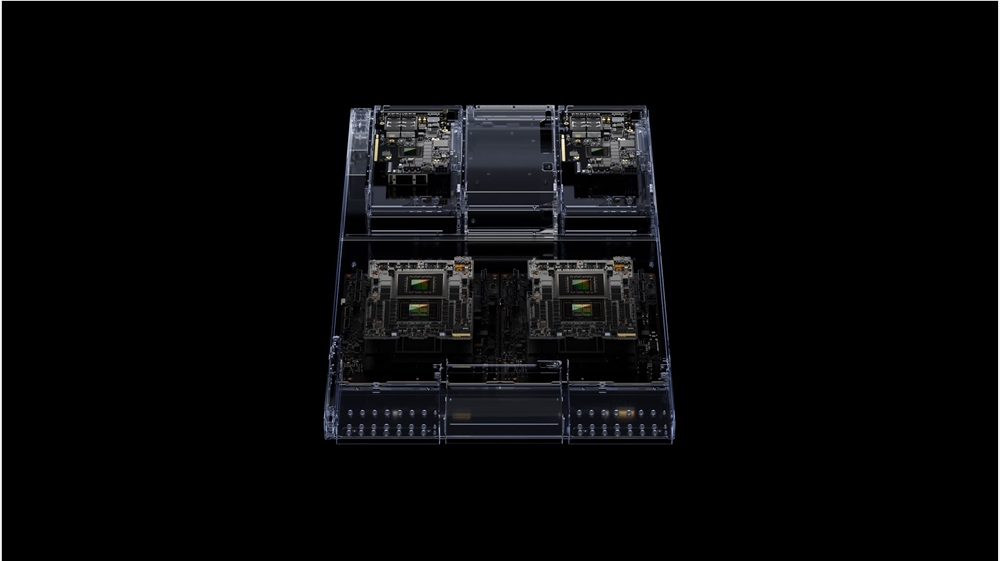The recent fluctuations in Nvidia's stock price have attracted market attention. Although it experienced a brief recovery, it still fell nearly 3% this month. Analysts believe this may be related to increased competition and slowing spending on artificial intelligence. However, the extent of the AI spending slowdown and its impact on Nvidia remains unclear. Omdia, a global technology consulting company, released a report estimating the major buyers of Nvidia chips. The report revealed some unexpected findings in the market and also triggered thinking about changes in the future market structure.
Although Nvidia (Nvidia) had a sluggish performance in December and its stock price continued to decline, which market analysts believe may be related to increased competition and slowing artificial intelligence spending, the stock price recovered today. However, shares are still down nearly 3% for the month as of press time, signaling a potentially lackluster end to a year of significant growth for the company.
It's unclear whether AI spending will slow enough to impact Nvidia. But a technology consulting firm recently released a report revealing their estimated largest buyers of Nvidia chips. The list includes a mix of tech giants and companies that may seem unlikely to be top buyers of artificial intelligence chips.
Who is buying Nvidia chips in bulk?
The analysis team for this Nvidia chip buyer list comes from global technology consulting company Omdia. Omdia calculated its estimates by analyzing companies' publicly disclosed capital expenditures, server shipments and supply chain intelligence, the Financial Times reported.
This analysis focuses on companies purchasing Nvidia Hopper graphics processing units (GPUs), a popular chip commonly used in data center infrastructure. It should be emphasized that the data on this list are estimates and are not actual order statistics provided by Nvidia.

Omdia analysts believe that Microsoft will order the largest number of Nvidia Hopper chips in 2024, with a total expected to reach 485,000. This number is more than double that of the second-ranked US company on the list, Meta Platforms (Meta), which has an estimated order volume of 224,000 units.
However, interspersed among these Silicon Valley giants are two technology companies based in China.
ByteDance (the parent company of TikTok), as a private company, expects chip orders to be 230,000, following Microsoft. The order volume of technology giant Tencent Holdings is also close to 230,000 units, closely following ByteDance.
The Financial Times added that Nvidia chips ordered by ByteDance and Tencent in 2024 include the H20 model, a weaker version of Hopper tuned to meet U.S. export controls to China.
After Meta, the last three buyers on the list are Elon Musk’s two companies Tesla and xAI (listed as the same company), as well as Amazon and Google.
Will the market structure change?
This list shows that according to Omdia's estimates, the three giants in Silicon Valley, Amazon and Google, may have significantly less Nvidia chip orders than some competitors. Given the industry's reliance on Nvidia chips, and Nvidia's leadership in the field, this raises a key question: whether Amazon and Google are reducing their need for Nvidia GPUs and instead using homegrown chips to power their artificial intelligence platform?
In fact, other tech companies have struggled to compete with Nvidia's AI hardware. As TheStreet’s Silin Chen recently reported, “Most AI training uses expensive Nvidia GPUs. Amazon aims to enhance its custom chips to lower customer costs and increase supply chain control. This could reduce its exposure to critical cloud Partner Nvidia Dependence.”
In April 2024, both Google and Meta announced progress in developing self-developed AI chips and promoted them as alternatives to Nvidia chips.
This raises what Fortune calls Nvidia's "trillion dollar question" about how much of a threat these new chips pose. Now, experts estimate that these companies have fallen significantly behind some rivals in orders for Nvidia chips.
Omdia's report provides a new perspective on Nvidia's future development, and also indicates that competition in the artificial intelligence chip market is becoming increasingly fierce, and the future pattern may undergo major changes. The investment and independent research and development capabilities of major technology companies in AI chips will become key factors in determining the market direction.